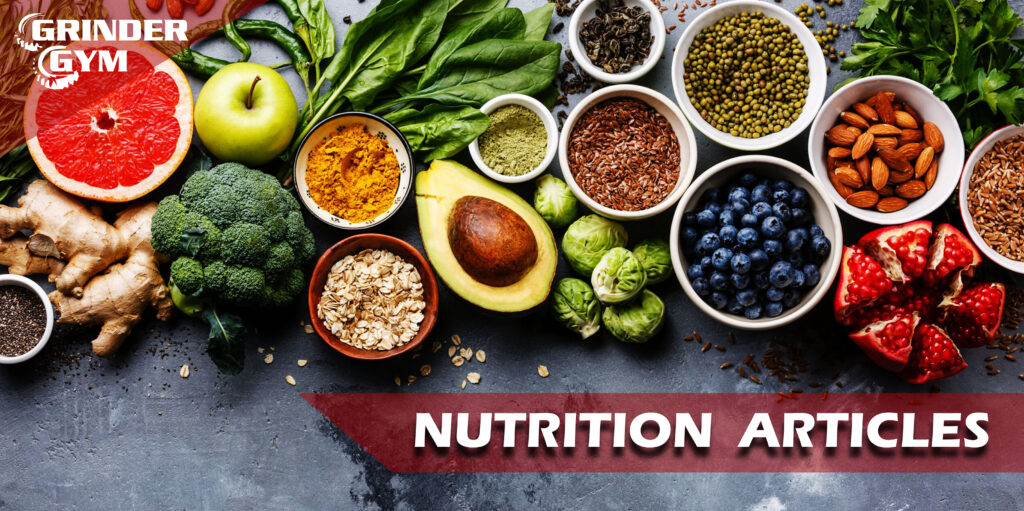
Macronutrient timing refers to the strategic consumption of carbohydrates, proteins, and fats at specific times around exercise to maximize performance, support recovery, and enhance overall health. By carefully timing the intake of these macronutrients, athletes can optimize their energy levels, muscle repair, and adaptation to training. This detailed exploration covers general nutrient strategies, as well as specific approaches for pretraining, during training, and posttraining nutrition. It also examines the crossover concept and concludes with practical recommendations for implementing macronutrient timing strategies.
Nutrient Strategies
Nutrient strategies are the overarching principles that guide how, when, and what an athlete should eat to support their training and performance goals. These strategies are tailored to the individual’s needs, the demands of their sport, and their overall nutritional goals.
Balancing Macronutrients:
- Carbohydrates: Carbohydrates are the body’s primary energy source, especially during high-intensity exercise. They should be consumed in adequate amounts to fuel workouts and replenish glycogen stores. The timing of carbohydrate intake is crucial for maintaining energy levels and optimizing recovery.
- Proteins: Proteins are essential for muscle repair and growth. Athletes should consume protein throughout the day, particularly around training sessions, to support muscle protein synthesis and prevent muscle breakdown.
- Fats: Fats provide a concentrated source of energy, particularly during low to moderate-intensity exercise. Healthy fats should be included in the diet, but their intake should be carefully timed, as fats can slow digestion and may not be ideal immediately before intense exercise.
Personalization:
- Individual Needs: Nutrient strategies should be personalized based on factors such as the athlete’s age, gender, training volume, and specific goals (e.g., muscle gain, fat loss, endurance). Understanding these individual factors allows for more effective macronutrient timing.
- Sport-Specific Requirements: Different sports have varying energy demands. For example, endurance athletes may require higher carbohydrate intake, while strength athletes may benefit from increased protein intake. Tailoring nutrient strategies to the specific demands of the sport is key to maximizing performance.
Pretraining Nutrient Strategies
Pretraining nutrition focuses on preparing the body for the physical demands of the upcoming workout or competition. The goal is to ensure that the body is adequately fueled, hydrated, and ready to perform at its best.
Carbohydrates:
- Fueling Glycogen Stores: Consuming a carbohydrate-rich meal or snack 2-3 hours before training helps top off glycogen stores, providing the necessary fuel for high-intensity exercise. For example, a meal might include whole grains, fruits, and starchy vegetables.
- Fast-Digesting Carbs: For those who need a quick energy boost closer to their workout, easily digestible carbohydrates like bananas, rice cakes, or sports drinks consumed 30-60 minutes before exercise can provide rapid energy without causing digestive discomfort.
Proteins:
- Supporting Muscle Readiness: Including a moderate amount of protein in the pretraining meal can help maintain amino acid levels, reducing the risk of muscle breakdown during exercise. This is especially important for resistance training or prolonged endurance sessions.
- Examples: Greek yogurt with fruit, a protein smoothie, or a turkey sandwich on whole-grain bread are good pretraining options that provide both protein and carbohydrates.
Fats:
- Limited Fat Intake: While fats are essential in the diet, they should be limited in pretraining meals, especially those consumed close to the workout. Fats take longer to digest and can cause gastrointestinal discomfort if eaten too close to intense exercise. However, a small amount of healthy fats, such as those from avocado or nuts, can be included if there’s enough time for digestion.
Nutrient Strategies During Training
During training nutrition is crucial for maintaining energy levels, preventing dehydration, and supporting sustained performance, especially during prolonged or high-intensity exercise.
Carbohydrates:
- Sustaining Energy: For workouts lasting longer than 60 minutes, consuming carbohydrates during exercise can help sustain energy levels and delay fatigue. This can be achieved through sports drinks, gels, or energy bars that provide quick-digesting carbohydrates.
- Guidelines: The general recommendation is to consume 30-60 grams of carbohydrates per hour during prolonged exercise, depending on the intensity and duration of the workout.
Hydration and Electrolytes:
- Preventing Dehydration: Staying hydrated is critical during training. Water is usually sufficient for short, low-intensity workouts, but for longer or more intense sessions, athletes should consider sports drinks that provide electrolytes (such as sodium and potassium) along with fluids to replace what is lost through sweat.
- Balancing Intake: It’s important to sip fluids regularly rather than waiting until thirst sets in, as thirst may be a late indicator of dehydration.
Protein and Amino Acids:
- Preventing Muscle Breakdown: In some cases, particularly during ultra-endurance events or prolonged resistance training, consuming small amounts of protein or branched-chain amino acids (BCAAs) during exercise can help prevent muscle breakdown and support ongoing muscle repair.
Posttraining Nutrient Strategies
Posttraining nutrition is focused on recovery—restoring energy levels, repairing damaged tissues, and preparing the body for the next workout. The timing and composition of posttraining meals are crucial for optimizing recovery.
Carbohydrates:
- Replenishing Glycogen: The posttraining period, particularly within 30 minutes to two hours after exercise, is when muscles are most receptive to glycogen replenishment. Consuming carbohydrates during this window helps restore glycogen levels more effectively, reducing recovery time and preparing the body for the next bout of exercise.
- Examples: Foods like rice, pasta, potatoes, and fruits, combined with protein, are excellent choices for posttraining recovery.
Proteins:
- Supporting Muscle Repair: Protein is essential after training to kickstart muscle repair and growth. Consuming 20-30 grams of high-quality protein, such as whey protein, chicken, or fish, in the posttraining meal can enhance muscle protein synthesis.
- Amino Acid Composition: The presence of leucine, an essential amino acid, is particularly important for stimulating muscle protein synthesis. Whey protein, which is rich in leucine, is often recommended for post-exercise recovery.
Fats:
- Moderate Fat Intake: While fats should not be the focus of posttraining meals, including moderate amounts of healthy fats can support overall recovery and nutrient absorption. Fats from sources like olive oil, nuts, or fatty fish can be included without slowing down digestion too much.
Crossover Concept
The crossover concept refers to the body’s shift from primarily burning carbohydrates to burning fats as exercise intensity decreases. Understanding this concept is important for developing effective macronutrient timing strategies, especially for endurance athletes.
Carbohydrate to Fat Shift:
- High-Intensity Exercise: At higher intensities, the body relies more on carbohydrates as the primary energy source because they can be rapidly metabolized to produce ATP. However, these glycogen stores are limited and can be depleted quickly.
- Lower-Intensity Exercise: As exercise intensity decreases or during prolonged, steady-state exercise, the body shifts toward burning more fats. This shift helps conserve glycogen stores, allowing for sustained energy output over longer periods.
Training Adaptations:
- Endurance Training: Regular endurance training can enhance the body’s ability to oxidize fats even at higher intensities, effectively “sparing” glycogen and allowing athletes to maintain performance for longer durations.
- Nutritional Strategies: Athletes can train their bodies to become more efficient at burning fats through a combination of endurance training and strategically timed carbohydrate intake, particularly by focusing on carbohydrate intake during high-intensity training sessions and fat intake during lower-intensity or longer-duration sessions.
Conclusion
Macronutrient timing is a powerful tool that, when properly applied, can significantly enhance athletic performance, optimize recovery, and improve overall health. By understanding and implementing specific nutrient strategies before, during, and after training, athletes can ensure they are fueling their bodies for success. The crossover concept further highlights the importance of adapting nutritional strategies to the type and intensity of exercise, helping athletes make the most of their training efforts. With careful planning and individualized approaches, macronutrient timing can be a key component in achieving peak performance and maintaining long-term athletic health.
Recent Nutrition Articles:
NUTRITION








Comments are closed